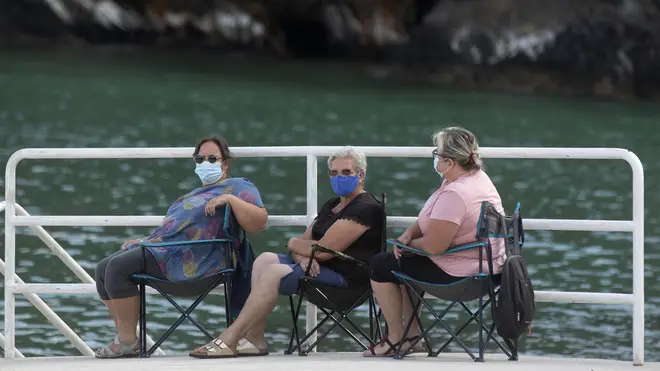
Paul Brand 7am - 10am
5 August 2020, 08:24

Post-menopausal women with lower levels of the female sex hormone estrogen appear to be at higher risk of developing serious complications of Covid-19, new research has found.
The study was led by researchers at King's College London and found that high levels of estrogen may have a protective effect against coronavirus.
Researchers also found women on the pill were less likely to develop serious coronavirus symptoms.
Analysis of more than half a million women during May and June by King's College London has identified the crucial role of Estrogen in protecting against Covid-19.
The hormone Estrogen, which declines in women post-menopause, interacts with the immune system in various ways, including influencing how many immune cells are produced and how they respond to infection.
The research also found postmenopausal women appeared to have a 22 per cent higher risk compared with premenopausal women.

NHS Test and Trace needs scaling up to reopen schools safely - study
Using data from the Covid Symptom Study App, researchers examined the rate of predicted Covid-19 among post-menopausal women, pre-menopausal women using the combined oral contraceptive pill (COCP) and post-menopausal women taking hormone replacement therapy (HRT), from more than 500,000 women in the UK, between May 7 and June 15 2020.
Researchers hypothesised that estrogen could serve as a protectant against Covid-19.
Previous studies on SARS-CoV and MERS suggest this might explain why men of all ages are at a higher risk of severe infection, including Covid-19.
The study found post-menopausal women had a higher rate of predicted Covid-19 than other studied women.
Women in the 45-50 age group were most likely to be at risk, and reported symptoms of anosmia, fever and a persistent cough, and the need for oxygen treatment in hospital was significant in this group.
Women using the COCP, between 18-45 years, had a lower rate of predicted Covid-19 and corresponding reduced frequency of symptoms, including persistent cough, delirium, anosmia, skipped meals, severe fatigue and pain.
The rate of hospitalisation was also significantly lower in this group.
HRT use, in post-menopausal women between 50-65 years, was associated with an increased rate of predicted Covid-19 but not with hospitalisation.
The researchers advised HRT results should be considered with caution due to the lack of information about HRT type, route of administration and duration of treatment.

‘This is for the greater good’: LBC speaks to woman taking part in covid-19 vaccine trial
Joint lead author Dr Karla Lee, from King's College London, said: "We hypothesised that pre-menopausal women with higher estrogen levels would have less severe Covid-19 when compared to women of the same age and BMI who had been through the menopause, and our findings supported this.
"Additionally, when we compared a younger group of women on the combined oral contraceptive pill (COCP) with a similar group not taking the COCP we saw less severe Covid amongst those taking the COCP, suggesting hormones in the COCP may offer some protection against Covid-19.
"More research is certainly needed to further our knowledge."
Joint lead author Dr Ricardo Costeira, from King's College London, said: "Thanks to women of the Covid Symptom Study app we were able to show, with relatively large numbers, the significance of studying the sex hormone estrogen in relation to Covid-19.
"We hope that results from our study can help inform ongoing biomedical research and clinical trials in the field."